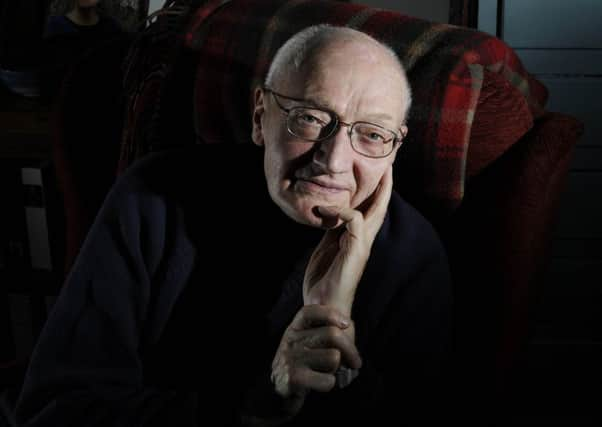Book review: A Little History Of Religion by Richard Holloway


A Little History Of Religion by Richard Holloway | Yale University Press, £14.99
For a supposedly “little” history of religion, Richard Holloway’s book is remarkably capacious. It may well be short, coming in at a little under 300 pages and in 40 snappy chapters, but that does not mean it is shallow or slight: quite the opposite.
Advertisement
Hide AdAdvertisement
Hide AdIf you expected that such a volume written by a former Primus of the Scottish Episcopal Church would be predominantly about Christianity, you would be mistaken. Starting with the anthropological roots of the idea of “religion” itself – how humanity first started asking why is there a universe and what is death – Holloway covers the Hindu Vedas, the Buddha, Confucianism, Zoroaster, Shintoism, Taoism, Sikhism and atheism. Of course, he also covers “the people of the book” – those who follow the three faiths that trace themselves back to Abraham; Judaism, Christianity and Islam. But even when dealing with his own strand of that trio, he is both generous-spirited and intellectually curious, not just giving succinct and sympathetic narratives of the various schisms, from Arius to Cerularius to Luther to Fox, but in including discussions about the Church of Jesus Christ of Latter-day Saints (the Mormons), Seventh Day Adventism, the Jehovah’s Witnesses and the Church of Christ, Scientist – not to be confused with Scientology.
Scientology is a revealing instance of Holloway’s general method. He notes how close it is to some other religious concepts, such as the cycle of reincarnations found in both Hindu and Buddhist texts. He allows himself a wry aside – noting the wealth accumulated by the Scientologists, he quips “Lafayette Ron Hubbard died in 1986. Whether he came back as a Scientologist or something else is impossible to say”. But he admits, with kindness, that their vision of an endlessly battered human psyche struggling to become better, healthier, happier, or preferably all three, is an everlasting concern of our species. They say Thetans, we say Theos.
Whether it is in comparing different forms of Reformation, or in noting shared sympathies and grievances across continents, Holloway is always courteous. This is not wholly JG Frazer’s Golden Bough or the old “one mountain, many routes to the summit” saw. He is certainly clear about where he thinks religion has been complicit in oppression, politically manipulative and determined to close off humanity’s awareness of itself rather than enlighten ourselves to ourselves. Holloway often uses analogies from art, and this is both wise and clever. In the wise sense, it reminds us not just that so much of our culture, history and philosophy is derived from religious sources but that art, like religion, is a universal human phenomenon; it is clever in that it allows a curious atheist to read the book without feeling they’re getting a sermon.
This is a book review, and not a hagiography, so I am duty bound to observe some sins of omission if not sins of commission. I would have liked more material on Rabbinical Judaism after the Destruction of the Temple. On the Christian charge-sheet, the lack of the great mystics – St Theresa of Avila, Jakob Böhme, Meister Eckhart – seemed to be remiss. The 19th century’s “long withdrawing roar” is dominated by Darwin in this account, but perhaps more space should have been given to Nietzsche and Kierkegaard. As for Islam, the Mutazilite controversy over whether the Quran existed eternally with God or was created in the world set the foundations for many other struggles. It may seem to us as esoteric as the Hypostatic Union, but the deep points of the argument rested on reason and faith, human possibility and divine intransigence. Spiritualism may not be a religion or even really a cult, but it was a phenomenon that tried to address the questions Holloway poses at the outset of the book, and attracted geniuses like Arthur Conan Doyle and WB Yeats as well as cranks like Madame Blavatsky and George Gurdjieff. It was certainly a yearning, a yearning we see now in crystal healing, “the memory of water” and the career of any TV medium.
Towards the end, Holloway deals with two vexed issues. Will religion die out? And is it responsible for violence? The answer to the second is indubitably yes, but not all. The answer to the first, probably no; though some iterations may succumb and new ones arise. Holloway writes in the finale of this book “Atheism says God doesn’t exist. If God does exist he is more likely to be amused than outraged by the atheist’s impudence… but if God is not a monster, then he is unlikely to be amused by religious teachers who make him out to be one… religion is God’s fiercest opponent”. At least He has Richard Holloway on His side.
• Richard Holloway, Edinburgh International Book Festival, 24 August